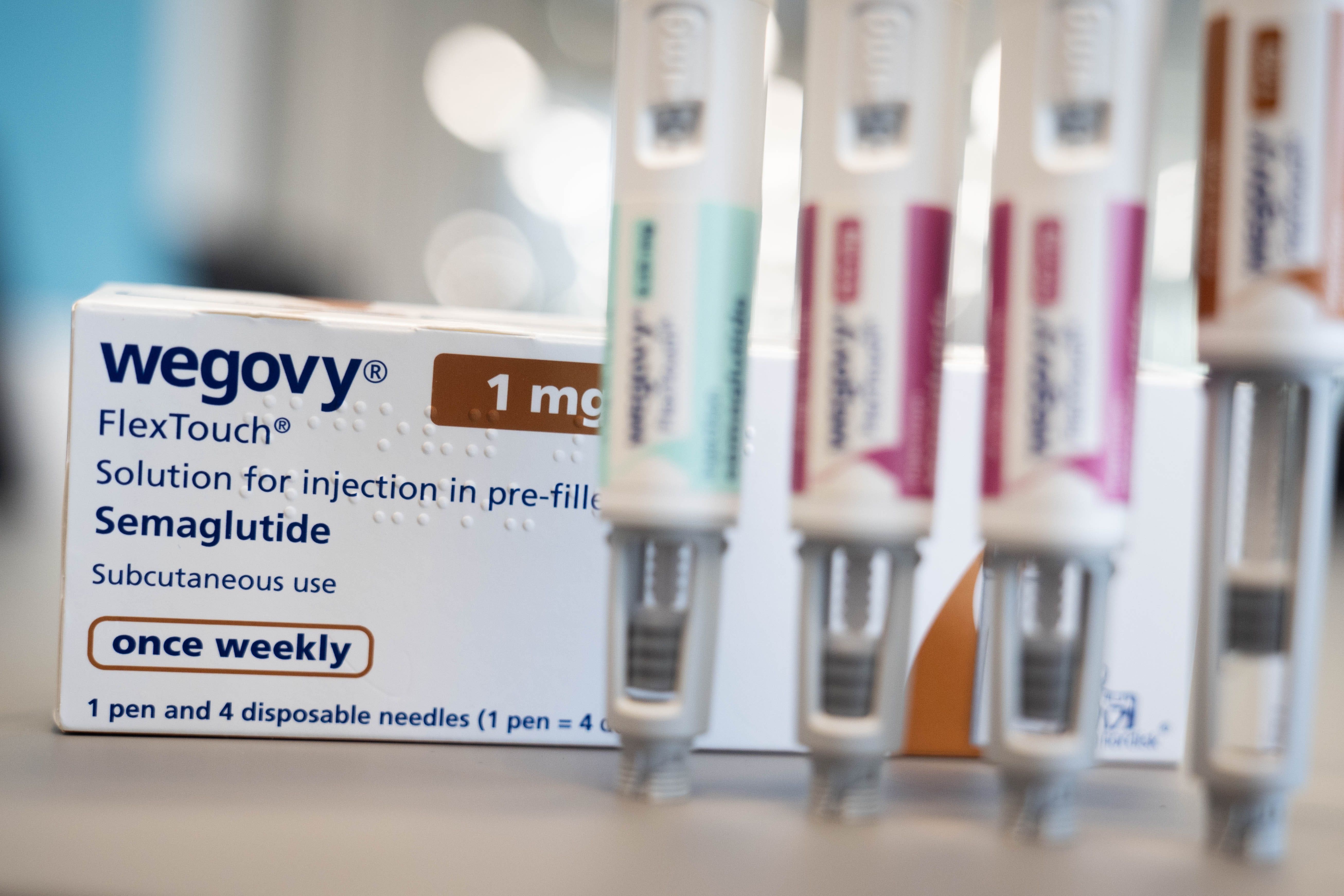Weight-loss injections, including popular drugs like Wegovy and Mounjaro, may offer a protective shield against serious conditions such as dementia and stroke, a new study has indicated.
The research also suggests that individuals with type 2 diabetes and obesity who are prescribed these medications could face a reduced risk of premature death.
Academics behind the study noted that while the efficacy of GLP agonist drugs – such as semaglutide (found in Wegovy and Ozempic) and tirzepatide (Mounjaro) – in managing weight and blood sugar levels is widely recognised, their wider health benefits have remained less understood.
The comprehensive study, conducted by experts in Taiwan, examined data from 60,000 people worldwide, with an average age of 58, all diagnosed with type 2 diabetes and obesity.
Roughly half of the participants were given GLP agonist drugs.
These medications function by curbing appetite, slowing digestion, reducing the liver's sugar output, and enhancing the body's insulin production when required.
The other half used other anti-diabetic medication.
During a seven-year follow-up period, researchers found that people given the GLP agonist drugs appeared to have a 37 per cent lower risk of dementia and a 19 per cent reduced risk of stroke.

They were also 30 per cent less likely to die during the follow-up period.
When researchers looked at the data further, they found even greater benefits in people aged 60 or older, women, and those with a body mass index score of 30 to 40.
They found no differences in Parkinson’s disease or brain bleeds.
The academics said their findings suggest “potential neuroprotective and cerebrovascular benefits” of the drugs but they called for more studies to confirm the findings.
“These findings suggest that semaglutide and tirzepatide may offer neuroprotective and cerebrovascular benefits beyond glycemic control, potentially improving long-term cognitive and survival outcomes in adults with type 2 diabetes and obesity,” they wrote in the journal JAMA Network Open.
Commenting on the study, Professor Tara Spires-Jones, director of the Centre for Discovery Brain Sciences at the University of Edinburgh and group leader in the UK Dementia Research Institute, said: “This is a very interesting study adding to evidence that GLP1 receptor agonists are associated with a lower risk of dementia in people with type 2 diabetes and obesity.
“This type of study cannot determine whether the drugs reduced disease risk by directly protecting the brain.
“It is highly likely that effectively treating type 2 diabetes and obesity would reduce dementia and stroke risk as they are known risk factors for these conditions.
“Further work is needed including randomised clinical trials to confirm these drugs are protective in people with diabetes and obesity and other trials are needed to determine whether these drugs will be protective in people who do not have type 2 diabetes and obesity.”
The health conditions that may increase risk of dementia
Weight loss surgery tourism needs urgent regulation, experts say
Watchdog bans host of ads for prescription-only weight-loss medications
Warning over ‘contaminated’ tomatoes sold across UK
Addictive nicotine pouches can legally be sold to children in shops
Scientists unlock secret behind rare disease where flu can cause paralysis







